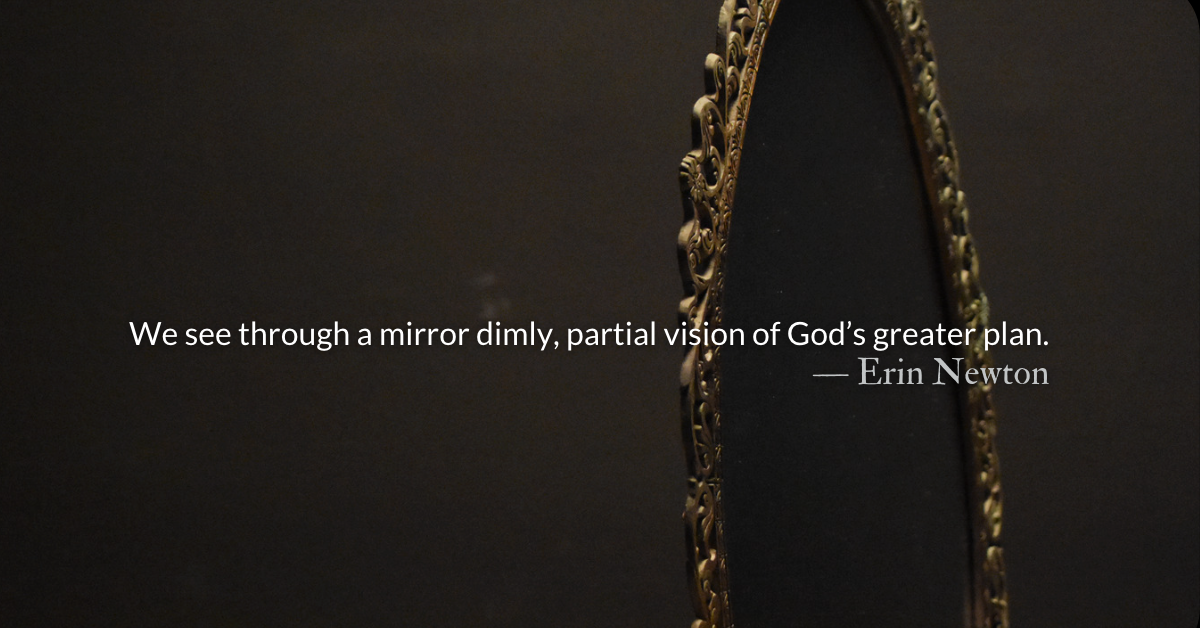Scripture Focus: Genesis 48:17-19
17 When Joseph saw his father placing his right hand on Ephraim’s head he was displeased; so he took hold of his father’s hand to move it from Ephraim’s head to Manasseh’s head. 18 Joseph said to him, “No, my father, this one is the firstborn; put your right hand on his head.”
19 But his father refused and said, “I know, my son, I know. He too will become a people, and he too will become great. Nevertheless, his younger brother will be greater than he, and his descendants will become a group of nations.”
Reflection: Mistakes for Good?
By Erin Newton
God can take something meant for evil and make it work for good. But what about mistakes? Can God take a human mistake and use it for good?
As Jacob lays on his deathbed, Joseph brings his two sons to see their dying grandfather. Jacob blesses the boys with promises given to his own sons. But the grandsons are blessed out of order! Ephraim, the younger, is given the elevated blessing, a firstborn’s portion. Manasseh, the oldest, is blessed as a second-born.
Jacob is blind, and Joseph assumes his crossed arms were an accident. Jacob continues by granting Ephraim the greater blessing.
Joseph only sees a mistake being made. (He even tries to jump in to correct his father.) He bases his assumptions on how things ought to be. He has done everything right, reconciled with his brothers, and visited his ailing father. This should be a straightforward situation; nothing can go wrong.
Like the story of Joseph’s enslavement and deportation to Egypt, God worked through situations that looked hopeless or bound for misery. We are accustomed to looking at tragedies and preaching to our hearts that God can work something good out of them. But what about things that look haphazard? What about the events that look like someone messed up?
The text never really indicates if God divinely inspired Jacob to switch the blessing order or if a mistake was made that Jacob accepted. The blessing was done, and the results could not be changed.
How many times do we look at a situation and assume that someone has made a mistake? If it’s a small thing, we don’t give it a second thought. But what about the big mistakes—the doctor who missed a diagnosis, the airline that lost your luggage, the distracted driver that hit your car, or the cashier who overcharged you?
When these things happen, we fault the person for making a mistake. We think, “If only they had done it right, I wouldn’t be suffering right now!” We cling to an “if-only” faith.
Jesus was blamed for an “if-only” scenario. “If only you had been here, Lazarus would not have died” (John 11.32).
It is easier to blame someone for making a mistake rather than trusting God to work among errors. God works through perceived irregularities. Think of the “if-only” times in your life. Hear God say, “I know, son, I know.”
Divine Hours Prayer: The Refrain for the Morning Lesson
The same stone that the builders rejected has become the chief cornerstone. — Psalm 118.22
Today’s Readings
Genesis 48 (Listen 3:43)
Matthew 9 (Listen 4:56)
Read more about Supporting Our Work
Our donors support ad-free content that brings biblical devotionals to inboxes across the world. Please consider joining them.
Read more about Becoming a Blessing
Our broken world seeks righteousness.
Bring it through us.
Our lost world seeks truth.
Speak it through us.











